Profile
Amanda Nyirah Bayeh embraces volunteerism, community service …urges youth to do same
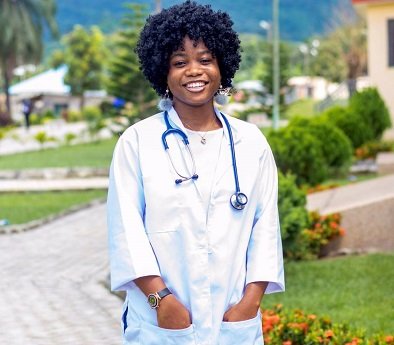
A philosopher once said: “We are not given a good or a bad life; we are given a life and it is left to us to make it good or bad.’’
This expression somehow finds a place in the story of Amanda Nyirah Bayeh who did not allow financial and health challenges to limit her medical ambitions.
Just like other individuals from humble backgrounds, her mother solely shouldered her responsibilities due to the “unavailability” of her father.
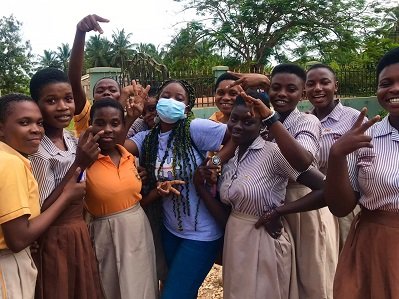
girls to reach their goals●●Amanda inspires young
girls to reach their goals
This notwithstanding, she was able to progress through various stages of education to be inducted in September 2021 as one of the youngest medical doctors of her batch.
Although she was still finding her feet, she had already started giving back to society by volunteering and supporting various community outreaches targeted at the less privileged.
Amanda, in an interview with The Spectator, touched on aspects of her life; humanitarian works and the desire to empower young people reach their goals.
Background
The Medical Doctor of Liberian and Nigerian descent had basic education at Bethesda Methodist School but stayed home for a year due to financial challenges.
She later gained admission to Madina Senior High School in Accra to study General Science. In 2012, she entered University of Ghana Medical School after passing her final exams as a private candidate.
In spite of the remarkable feat, she admitted that lack of support from her biological father had affected her progress in diverse ways.
“There were days I expected him to ask of me but he never did. My mother made me not feel his absence because she made everything possible for us though things were difficult,” she said.
According to her, other social experiences including the struggles of less privileged mothers in providing medical care for their wards largely contributed and motivated her to pursue medicine.
Volunteerism
Describing volunteerism as combination of passion and sacrifice, she explained that her involvement in humanitarian works started in High School after she had chanced on the works of an Accra-based Non-Governmental Organisation (NGO).
“I used to be part of the Curious Minds Programme on GBC Radio and on one of the days we had the chance to host the founder of the NGO who later gave details about how I could support their community programmes.
“I started and continued to provide support while in medical school anytime there was an outreach,’’ she explained.
In the last few years, Amanda had volunteered for a number of organisations including, Give Me Hope Foundation, Lovers Heart Foundation, Vodafone Health Foundation, The Royal Banquet Team, Divine Mother and Child Foundation, among others.
She is a member and volunteer of the Young African Global Leaders Network Summit (YALS) and was adjudged Humanitarian of the Year at the Style Icon and Art Awards in September 2021.
Impact
In November last year, she was the Guest Speaker at the African Women Forum programme at Klo Agogo Senior High School in the Yilo Krobo District of the Eastern Region to educate girls on reproductive health issues. She had previously interacted with students of Osino Presby Primary and Junior High Schools in the same region.
Impressed with the impact made in the relatively short period, she said volunteerism and community outreaches had enabled her to appreciate the challenges of young people hence the effort in championing their course.
Through collaboration with benevolent persons and organisations, she supports young girls in cash and kind indicating that her desire is for them to achieve more than she has been able to do so far.
The Youth Advocate, Photo Model, Entrepreneur and Media Enthusiast said she would continue to engage the youth through various platforms and inspire them to keep looking at the brighter side of life.
Other engagement
Currently on Housemanship at Agbogba Clinic in Accra, Amanda looks forward to becoming a Cardiologist. She intends to establish a medical facility purely dedicated to addressing the health and educational needs of children in future.
In September 2021, she started a fast-growing YouTube channel with the aim of sharing her personal experience and empower young people.
“Amanda TV wants to give the youth the opportunity to express themselves on topics and videos posted regularly. I want the youth to know that in every impossibility, there is a possibility,” she said.
Expressing further commitment to her medical calling, she said she was ready to serve in remote areas of the country whenever duty calls.
Gratitude
Amanda has two other siblings one of whom is also a medical doctor. She acknowledges the support of family and friends who continue to support her professional and personal endeavours and encourages young people to take up volunteering opportunities and “not always think of reward for whatever they do.”
By Ernest Nutsugah
Profile
Salamatu Ahmed, Ghana’s only female Hausa sports broadcaster
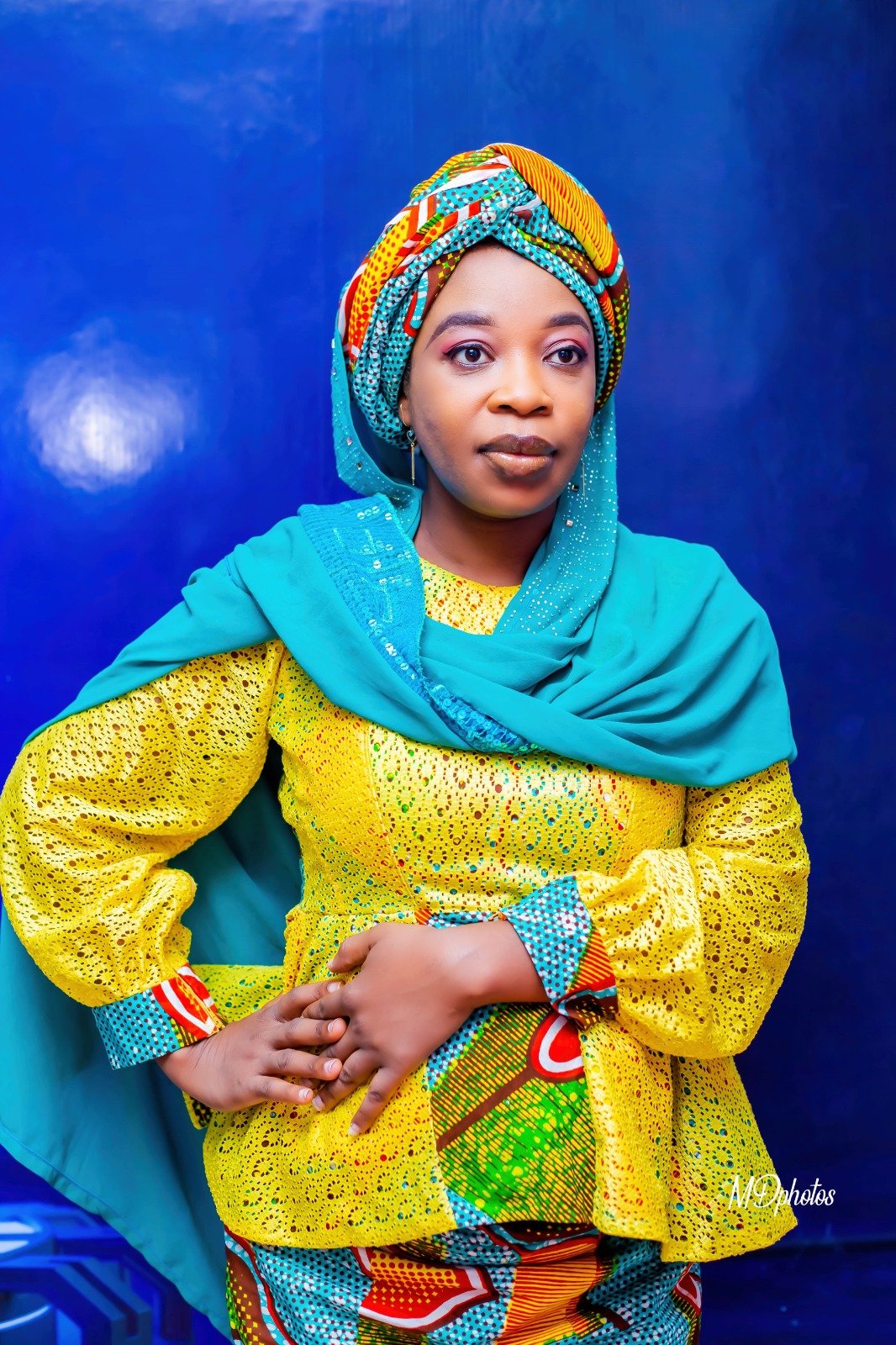
In a field long dominated by men, she has turned her microphone into a tool for change, amplifying women’s voices, promoting gender equality, and challenging deep-rooted stereotypes in sports journalism.
In Ghana’s media landscape, especially in the arena of sports, Salamatu Ahmed stands out. Not just as the host of Iqra Radio’s popular morning show, but as the country’s only female Hausa sports broadcaster.
From humble beginnings in Lagos to an influential voice behind the microphone in Accra, her journey is one of boldness, resilience, and purpose.
“I grew up in a close-knit neighbourhood in Lagos where everyone looked out for each other,” she recalled in an interview with The Spectator on Monday. “There was no discrimination. I could enter any house, share a meal or even sleep over without raising eyebrows. That spirit of unity shaped my values.”
She said, her love for broadcasting was sparked by her father, who was an athlete and devoted news watcher. Her father loved sports and news and recounted how she used to sit with him, watching the newscasters and wondering how they memorised so much.
“I later found out they used a teleprompter-what a relief!” she said with a laughter.
Salamatu’s passion for football heightened during the France ‘98 World Cup. “I watched almost all the matches. That tournament made me fall completely in love with the game,” she said.
But it was not until years later that broadcasting became a real career path-and quite unexpectedly.
She recounted how a friend of hers was managing Hijra TV asked her if she knew anyone who could do Hausa sports for the TV station.
She grabbed the opportunity as she was not working at the time, saying “so I offered myself,” she explained. “That was how it all started.” From Hijra TV, she moved on to Baina TV and eventually found her home at Iqra Radio.
Though her original dream was to become an English-language sports anchor, Hausa unexpectedly became her breakthrough. “People always ask how I manage to do it in Hausa, and the fascinating part is I am a woman doing it. That’s what truly sets it apart.”
But the journey has not been without hurdles. As a woman in sports media, she has had to fight for access and respect.
“It is always difficult getting interviews. Some male counterparts do not like sharing contacts or information,” she said.
Salamatu recounted how early on, men would ask for sexual favours in exchange for job opportunities. She said it got so discouraging that she left job-hunting for a while and ventured into business instead.
Now firmly established in her field, she uses her platform not only to cover sports, but to push for systemic change. As a panelist on various forums and a vocal supporter of women’s football, Salamatu has advocated for increased investment, better pay, and more opportunities for female athletes.
“Why should male footballers be paid more for doing the same job?” she quizzed during the conversation. “Female athletes often do not get bonuses or incentives that make life easier for them. People label us feminists for speaking out-but isn’t it just fairness?”
She also spoke passionately about how female athletes face scrutiny that goes beyond performance. “Look at Barbara Banda of Zambia; she faced criticism for being too ‘masculine.’ Imane Khelif, the Algerian boxer, faced similar discrimination. It’s disheartening. People forget these women are excelling at their craft.”

In 2024, Salamatu’s influence reached the global stage when she was selected to represent Ghana at the Fourth Eurasian Women’s Forum in St. Petersburg, Russia. There, she joined other global leaders in conversations about empowering women in media, politics, and business.
“That experience showed me that our voices matter beyond our borders,” she said. “We are not just fighting for recognition here; we are part of a global movement.”
Away from the microphone, Salamatu is known for her bubbly personality. “I am a fun-loving person-anything fun, count me in! I love cooking, watching movies, and reading.”
She credits her background-a Muslim from a Zango family for instilling in her resilience and discipline.
After schooling in Lagos, she moved to Ghana and earned a diploma in Communication Studies from the African University College of Communications (AUCC), now African University of Communication and Business (AUCB).
Her greatest pride is being the only female voice doing Hausa sports broadcasting in Ghana.
“Until someone else comes along, I will keep holding this fort,” she said with a smile. “It is my biggest achievement so far.”
For young girls looking up to her, she urged them never to be intimidated but rather carve a niche for themselves and be unique.
“You do not have to sound like or look like everyone else. Just be you and be excellent,” she added.
By Esinam Jemima Kuatsinu
Profile
Fiator Mordeku III of Awudome Tsito — The bridge builder in chieftaincy and architecture

Fiator Mordeku III of Tsito, known in private life as Kafui Kwame Amegbe, is a unique blend of tradition, service, and modern professionalism.
As a chief, an architect, and a community development advocate, he wears his many hats with humility, driven by a powerful dual motivation: a deep desire to serve and preserve his family’s legacy, and to play an active role in creating positive change in society.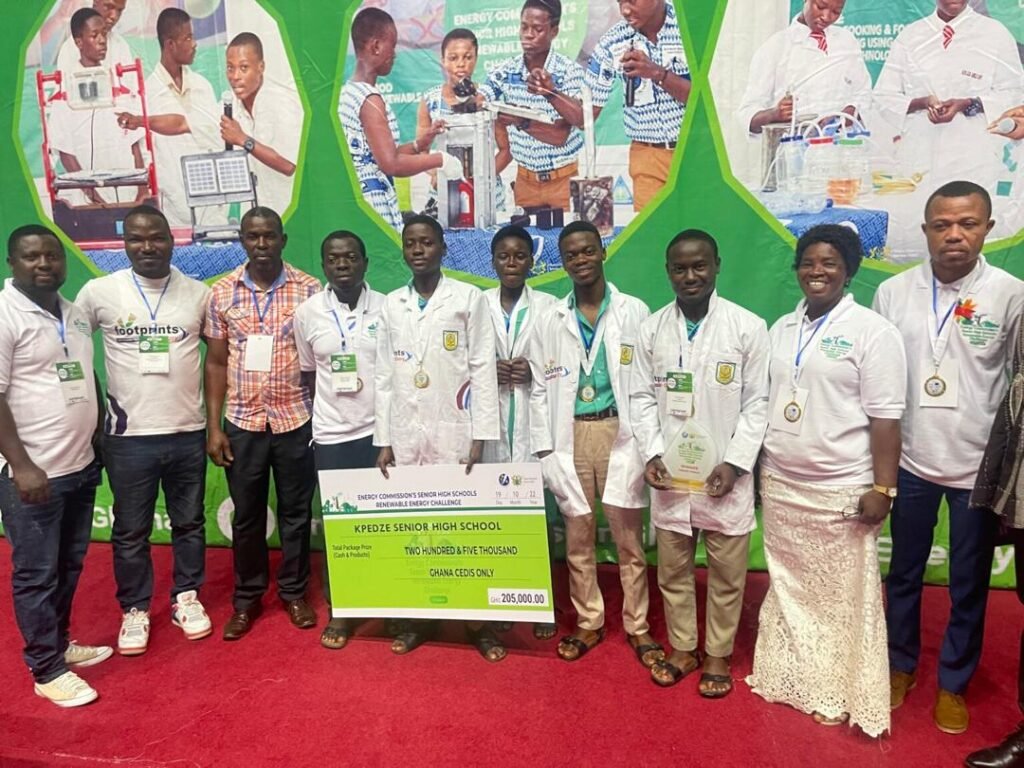
picture with winners of the Energy Commission
High School renewal energy challenge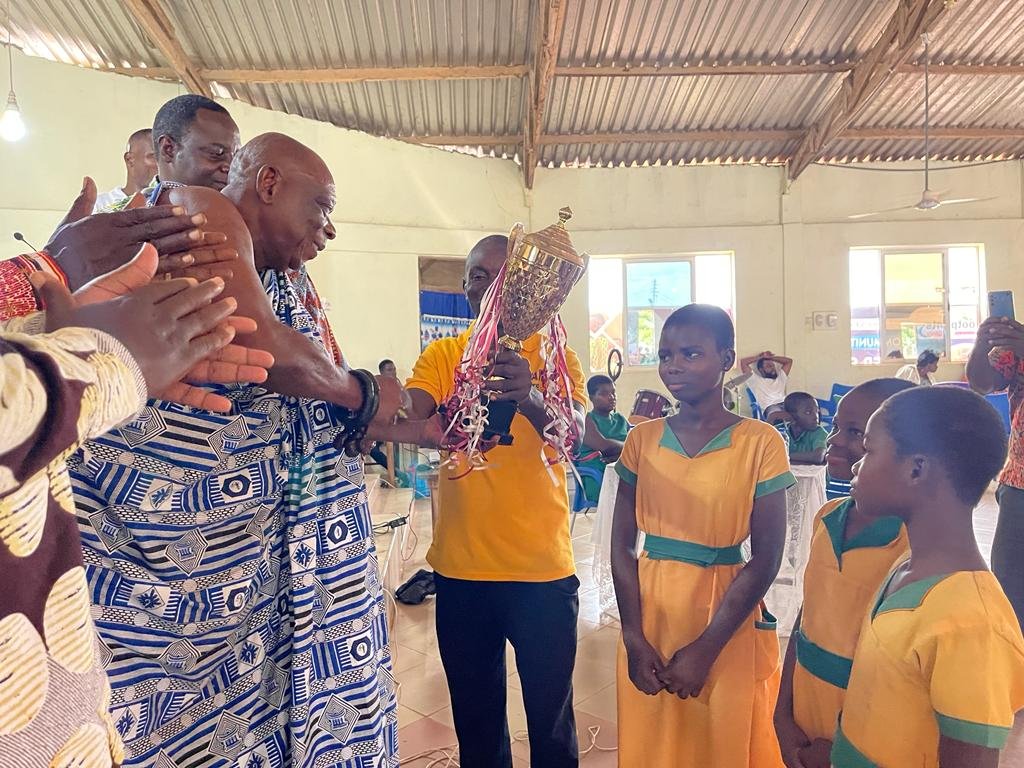
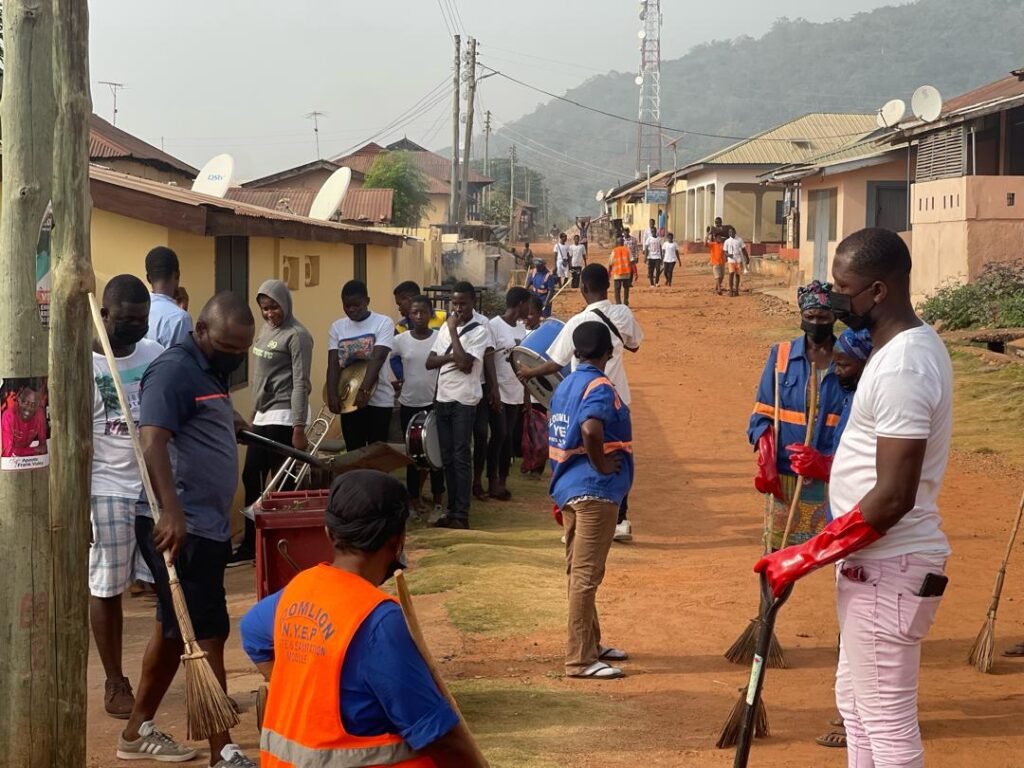
From a young age, Kafui’s life has been guided by strong values rooted in communal living.
Growing up in a close-knit family and community, he experienced firsthand the power of shared responsibility-where neighbours became second parents, and village elders doubled as life coaches.
Speaking to The Spectator in Accra on Saturday, Fiator Mordeku Ill said one childhood memory that continues to inspire him is when Togbe Gobo Dake XII, Chief of Tsito, bought him a slate for his first day in school.
Today, he serves as Fiator (father to Togbe Gobo Dake XII) to his childhood benefactor-a powerful circle of legacy and service.
“I was enstooled in my late 30s, so this journey is still quite fresh-just under two years in,” he said, by many standards that is considered quite young, especially given the weight and complexity of traditional leadership.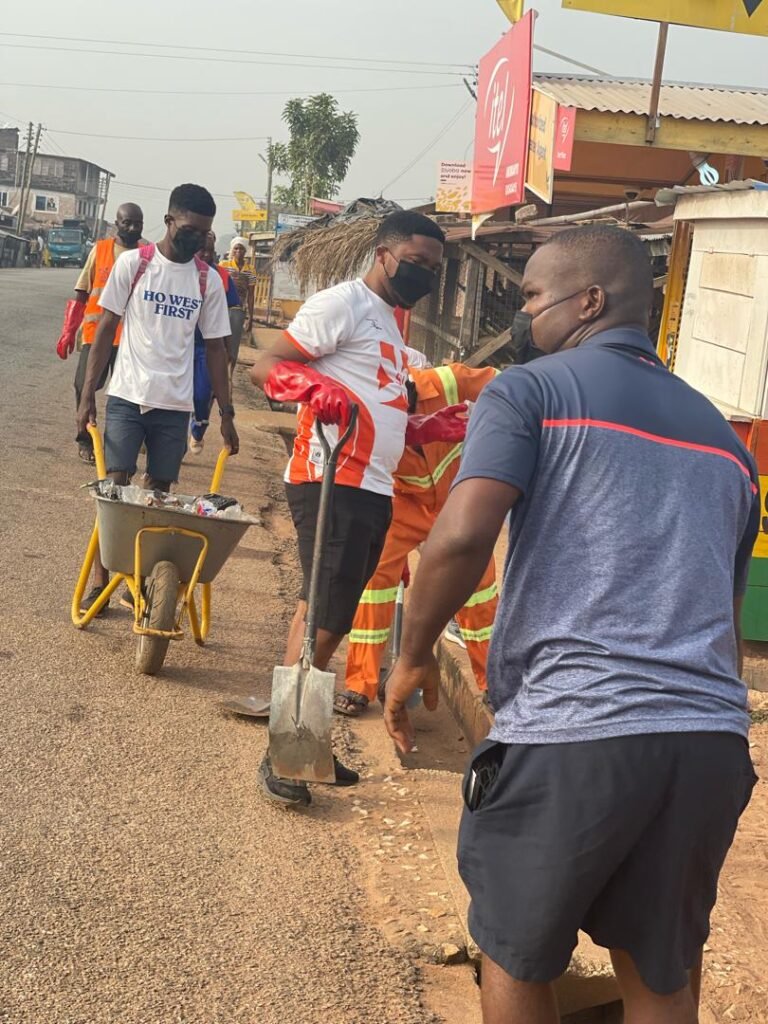
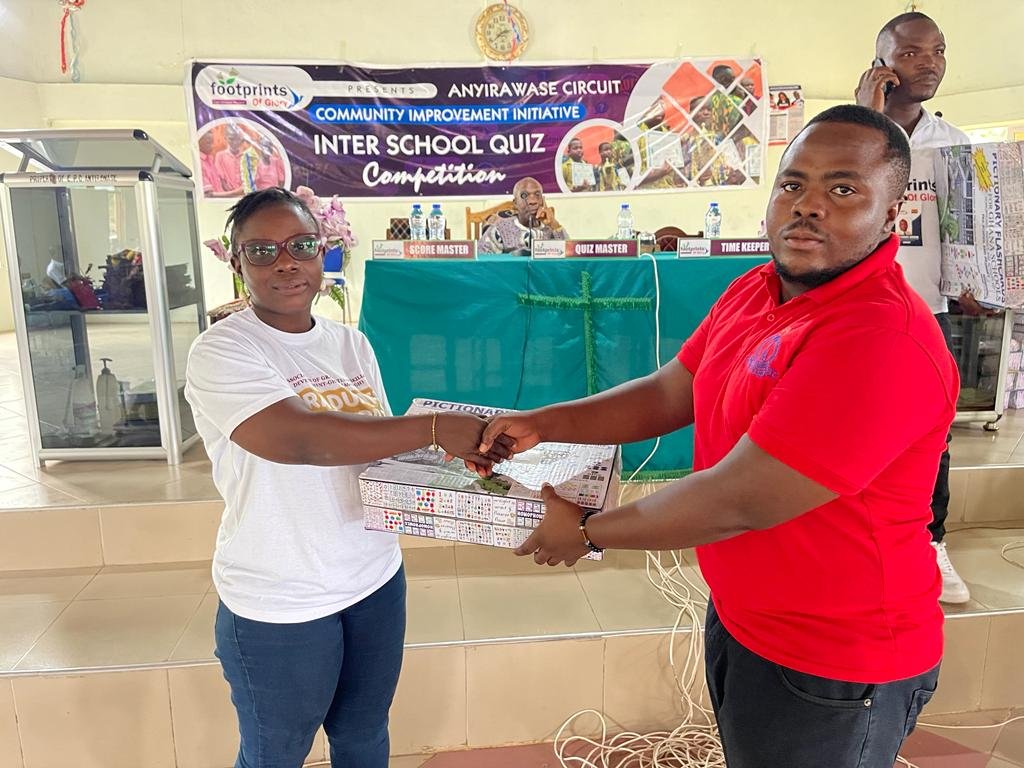

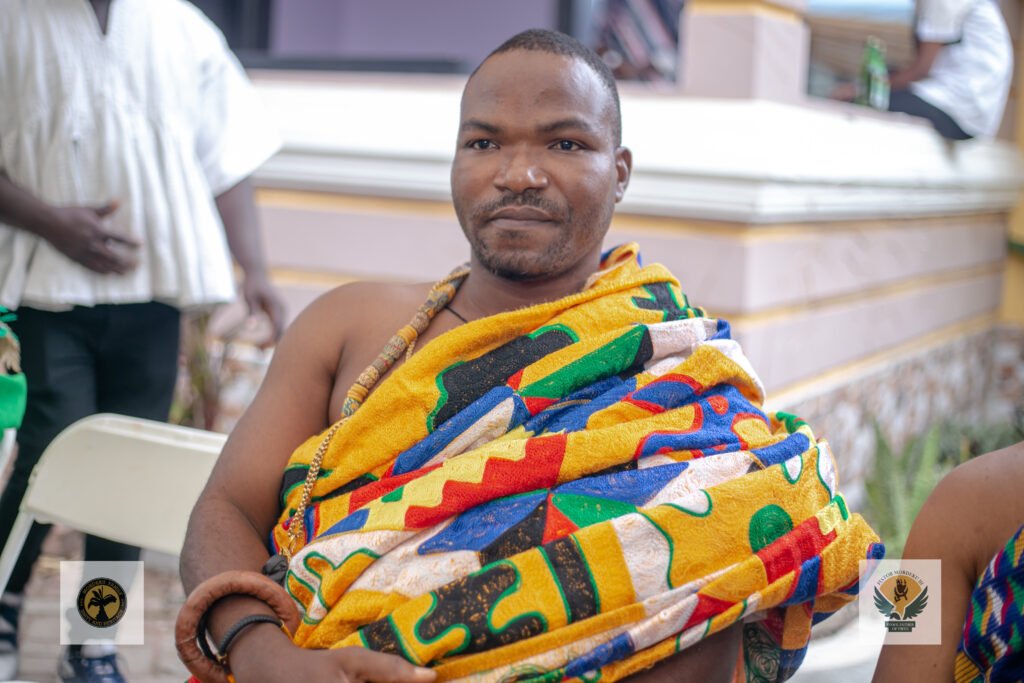
Tsito during his coronation
But I have always believed that leadership is not about how old you are; it is about preparation, mentorship, vision and most importantly, a desire to serve.
According to him, becoming a chief at a young age came with immense responsibility, saying “chieftaincy can be complex and sometimes misunderstood, but my family played a key role in preparing me.”
On the day of his enstoolment, he stood composed, not because it was easy, but because he was aware of the expectations ahead.
The reality, however, only sank in later-when the calls, community issues, and needs began pouring in. For him, leadership is not about titles but about providing proactive and adaptive leadership that reflects the needs of today’s fast-changing society.
Fiator’s reliability with the youth is a defining feature of his reign. “I am not far from the Gen Zs,” he says.
This closeness, according to him, enables him to connect with young people on a peer level, encouraging them to engage in community initiatives and understand the importance of preserving tradition. It is this connection that empowers him to blend traditional authority with modern innovation.
Outside of chieftaincy, Kafui is a passionate architect and advocate of sustainable design.
His love for designing spaces began as early as Junior Secondary School, and today, he continues to inspire with thoughtful architecture that focuses on sustainability, community needs, and the intelligent use of local materials.
To him, architecture is about how people interact with spaces, and one of his proudest contributions is his role in the design of the new Regional House of Chiefs projects across Ghana’s six new regions-a national undertaking that incorporated diverse stakeholder inputs.
His work as an architect and a chief converges in one of his most symbolic projects-a small concrete bridge he built behind his house.
It replaced a dangerous makeshift path used by locals, especially the elderly, to cross a storm drain.
“Now people walk across without fear. That one act of building a bridge, literally and symbolically, pushed me to think more deeply about the many quiet struggles people go through,” he said.
This bridge became the foundation for his greater calling – providing not just charity, but dignity and equity.
Through the Footprints of Glory Foundation, which he founded in 2020 and officially registered in 2021, Kafui has launched impactful initiatives across Tsito and the wider Awudome area.
From funding school fees and apprenticeships to constructing small community bridges and launching an online radio station (soon to become a full community station), the foundation has been a lifeline for many.
It is supported by respected individuals like Dr Yao-Foli Sekyema and Mr Michael Brefo. The foundation’s success lies in collaboration and shared purpose.
A touching example of his impact is the story of a young boy from a neighbouring village who, due to financial hardship, was working on farms despite being a top student. Fiator took him in, supported his education, and
today, the boy is university-bound-a story that encapsulates the spirit of his work.
“I don’t dwell much on legacy,” Fia
tor said. “My focus is on providing real, practical solutions that ease burdens and improve lives.”
Whether it’s mentoring architecture students, building community projects, or planning future academic pursuits.
Currently, he is studying for an MSc in Facilities Management with the aim of uplifting others through service, innovation, and collaboration.
He called on the youth to embrace discipline, humility and a deep willingness to keep learning, urging the youth not to be afraid of hard work or setbacks and that they were part of the journey.
“Find people who inspire you, ask questions, stay curious, and never forget your roots. Where you come from is your foundation, and it will keep you grounded no matter how far you go and we don’t have to wait until we are older to start serving.
He is married with three children and enjoys working out, playing lawn tennis, travelling, listening to music which he says helps him reflect, plan and recharge.
By Esinam Jemima Kuatsinu






